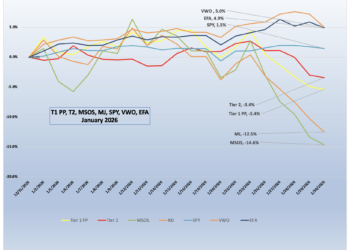In a pair of responses to a motion to dismiss, TuCoop refuted the claim that its federal lawsuit against a medical cannabis operator in Puerto Rico is retaliation over a voting dispute at the banking cooperative’s annual members meeting last spring.
TuCoop, a San Juan-based Savings and Credit Cooperative organized under Puerto Rico’s banking laws, sued one of its clients, 3G Green Gold Group LLC, in the U.S. District Court of Puerto Rico on June 7, claiming that the company disguised numerous financial transactions from its cannabis business as non-cannabis related deposits and transfers.
A ruling in the case could potentially change how electronic payments are treated when involved with cannabis companies. As it stands, most banks are skiddish about risking federal oversight by accepting electronic payments over their state’s FedWire service, which operates through the local federal reserve. In the case of Puerto Rico, FedWire operates through the New York Federal Reserve.
“All MRBs [Marijuana Related Business], including those in Puerto Rico, must comply with federal statutes preventing money laundering. TuCoop’s entitlement to terminate 3G’s account stems from federal regulation. As such, this Court enjoys federal jurisdiction over this case. 3G’s motion to dismiss should be denied,” wrote TuCoop’s attorneys in an Aug. 18 response to 3G’s motion to dismiss.
TuCoop is seeking a court order supporting its legal right to close the account, but representatives from 3G claim that the federal court does not have proper jurisdiction over the case and that TuCoop’s complaint assumes criminal acts that have not been proven. The lawsuit also comes shortly after 3G attempted to involve themselves in TuCoop’s annual meeting.
“This Court must understand that the real issue behind this case is TuCoop’s retaliation for 3G shareholders’ initiative to nominate and vote for directors at TuCoop’s annual meeting held May 31, 2023,” said 3G’s Aug. 4 motion to dismiss. “As an uncontested fact, TuCoop filed this complaint six days after some 3G shareholders nominated and tried to vote for directors in TuCoop annual meeting, and TuCoop refused to let 3G shareholders participate or vote.”
3G contends that TuCoop improperly cited federal law to justify a civil action, because the bank referenced alleged criminal activity that has not been proven in a court of law.
“Moreover, TuCoop relies on assumptions of illegal actions by 3G, even if there is no federal or state investigation, there has not been an accusation or determination by federal or state agencies of any wrongdoing by 3G,” said 3G’s motion. “TuCoop seeks to terminate the business relationship with 3G, which is a contract action that arises under Puerto Rico contract law and should be filed in state court.”
TuCoop countered that federal law allows them to terminate bank accounts based on suspicion rather than conviction.
“The Complaint is based strictly on federal law. Specifically, TuCoop has alleged that 3G has engaged in suspicious activity pursuant to federal money laundering statutes,” wrote TuCoop’s attorneys. “As such, TuCoop is solely asking the Court to declare that it may terminate its relationship with 3G and close its accounts in the institution based on 3G’s suspicious and/or illegal scheme related to the MRB. To declare whether TuCoop has such right, the Court will need to rely exclusively on federal laws.”
In response to the timing of the lawsuit, TuCoop claimed in a Sept. 1 filing, that it was asked by federal enforcers to pause litigation, but the co-op eventually decided to move forward anyway.
“If TuCoop has not acted earlier to close 3G’s accounts it is only because it received a request from a federal enforcement agency asking that it refrain from said action,” said TuCoop in the filing. “The time is ticking now. A judicial resolution declaring TuCoop’s right to close 3G’s accounts is necessary to avoid the risk of being unnecessarily dragged into litigation by 3G.”
Finally, TuCoop argued that their case was appropriate for federal court, because it will theoretically determine how TuCoop handles cannabis businesses in the future as per federal banking law.
“TuCoop has raised a dispute that involves a pure question of law that would govern the ongoing conduct of financial institutions that serve MRB’s under applicable State law, but which are also bound to comply with federal laws and the applicable guidance,” TuCoop said.












